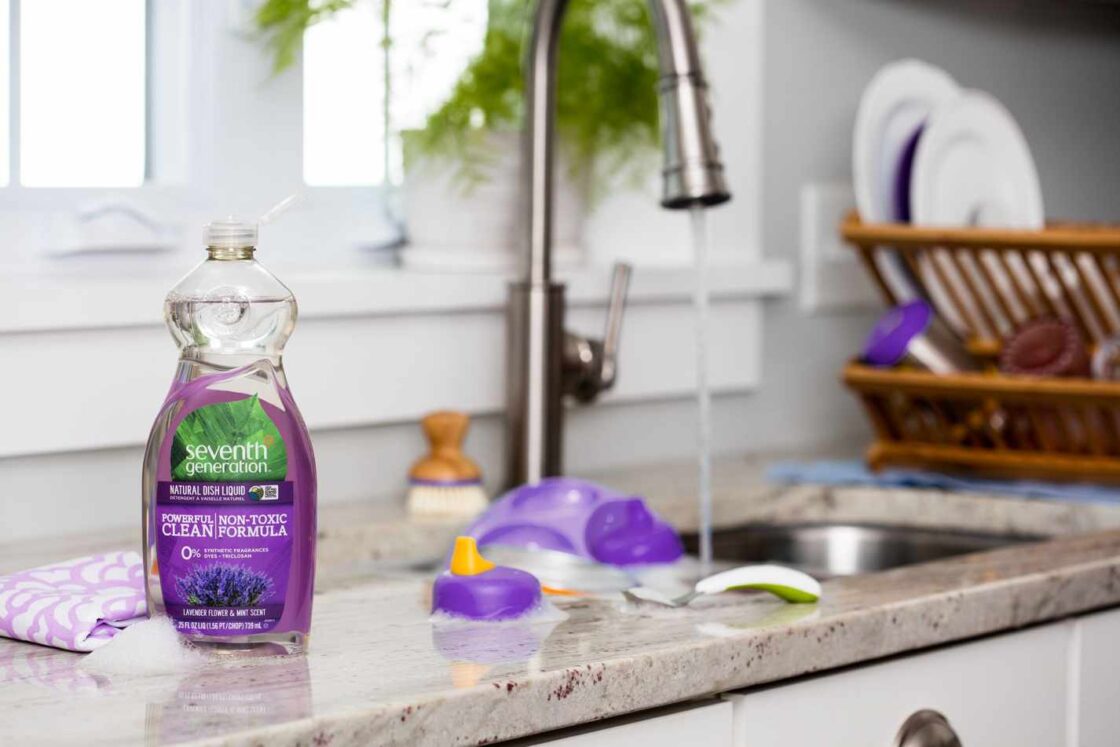7 Eco-Friendly Brands Making Every Day Earth Day

Climate change is a thing, and it should have all of us on the edge of our seats, eager to get involved in reducing the world’s carbon footprint. While efforts to put lasting and effective climate change policies at the forefront of our country’s political agenda often feels like a struggle, the roles we play as individuals, communities, and business owners are important ones that can effect immense change — without any political red tape. Today, so many companies are fulfilling the call to create products that give back to nature, rather than just take from it. Reduce buyer’s remorse by directing your dollars toward companies that take their business models to the next level -– the eco-friendly level.
Eco-friendly brands are by no means reserved to the following list. There are thousands upon thousands of companies playing their role in reversing the effects of climate change. Hopefully, by learning about these seven companies and their efforts, you will be inspired to dig deeper into the brands you support and make conscious decisions moving forward on how you would like to contribute to the world.
7 Brands Making Every Day Earth Day

1. Seventh Generation
For the past 28 years, Seventh Generation has been churning out plant-based household, baby, and feminine hygiene products. The company strives to pair science with clean ingredients, so that its products are not only environmentally-aware but also effective. The company creates zero waste and makes 100% biodegradable or recyclable products. Seventh Generation is also leading the #ComeClean campaign in order to pass the Cleaning Product Right to Know Act (H.R. 5205) requiring manufacturers of both consumer household and industrial cleaning products to disclose all intentionally-added ingredients on their product labels and websites (why this isn’t already required boggles my mind!).

2. Derma-E
Natural skincare brand Derma-E makes 100% vegan, cruelty-free formulas that do not contain parabens, sodium lauryl sulfates, petrolatum, mineral oil, artificial colors, gluten, soy or GMOs. Since 2007, the company has been manufacturing with wind power, reducing its environmental footprint by offsetting 100% of conventional electricity use wit wind energy certificates. Derma-E purchases Renewable Energy Certificates from Sterling Planet Inc. The certificates support Sterling Planet in its efforts to create a market for renewable electricity, increase energy diversity and security, reduce dependence on foreign energy sources, support domestic economies and create U.S. jobs.

3. Everlane
Everlane is an ethical fashion brand that is all about radical transparency. The company spends months finding the best factories around the world, building relationships with factory owners, and ensuring the factory’s integrity in maintaining ethical production practices. The result is quality, minimal aesthetic clothing with a story that will last, not one that is disposable and short-lived. With the fast-fashion industry coming in as the second-biggest polluter after the oil and gas industry, it is crucial that we support brands taking the time to make clothing we care about and keep in our closets longer than a singular season.

4. Patagonia
Patagonia has long made corporate responsibility its ethos and manages to be both ethical and sustainable at the same time. Patagonia works and to promote fair labor practices and ensure good working conditions in its factories. It builds relationships with suppliers that fake high-quality materials while reducing the environmental and social impact, and is very transparent about its supply chain. Patagonia makes fair-trade certified collections and uses organic cotton and recycled materials.

5. IKEA
For a company as big and mainstream as IKEA, it’s not easy to go green, especially when many of its consumers don’t think twice before purchasing. Even so, IKEA is pursuing sustainability. The company is investing $77 million into its GreenTech energy fund with the goal of producing solar panels, efficiency meters, and energy efficient lighting. Today, 71% of all IKEA products are recyclable and the company recycles 84% of the waste generated in its stores. With an extensive network of 270 stores in 35 countries, and one half a billion customers each year to boot, IKEA could really push forward the accessibility and affordability of sustainable technologies.

6. Nisolo
Nisolo’s vision says it all: “to push the fashion industry in a more sustainable direction – where success is based on more than just about offering the cheapest price–a direction that not only values exception design, but the producer and the planet just as much as the end consumer.” Nisolo responsibly sources its leather from tanneries committed to the ethical treatment of animals (always a byproduct of the meat industry) and the implementation of eco-friendly waste disposal systems. The company also collaborates with local artisans in Peru and provides fair wages and full-time employment to their artisans.

7. Vivreau
Viveau’s goal is to provide the best quality water from the most local source, eliminating the need for costly and polluting transportation and packaging. Vivreau works against “water miles”, or the environmentally negative effects that result from the transportation of pre-bottled water. The company’s research shows that 80% of a typical city office’s glass packaging waste is attributed to pre-bottled mineral water. Vivreau is founder of the On-Site Sustainable Water Bottling System, which provides reusable glass bottles for unlimited quantities of advanced micro-filtered chilled still and sparkling water, perfect for office or home use.
*Disclaimer: Help support Organic Authority! Our site is dedicated to helping people live a conscious lifestyle. We’ve provided some affiliate links above in case you wish to purchase any of these products.
Related on Organic Authority
8 Sustainable Tropical Fruits (and 3 to Avoid)
Walmart’s Latest Sustainability Initiatives: Doubling Local Produce and Reducing Emissions
We Give Up! What are the Most Sustainable Foods?

